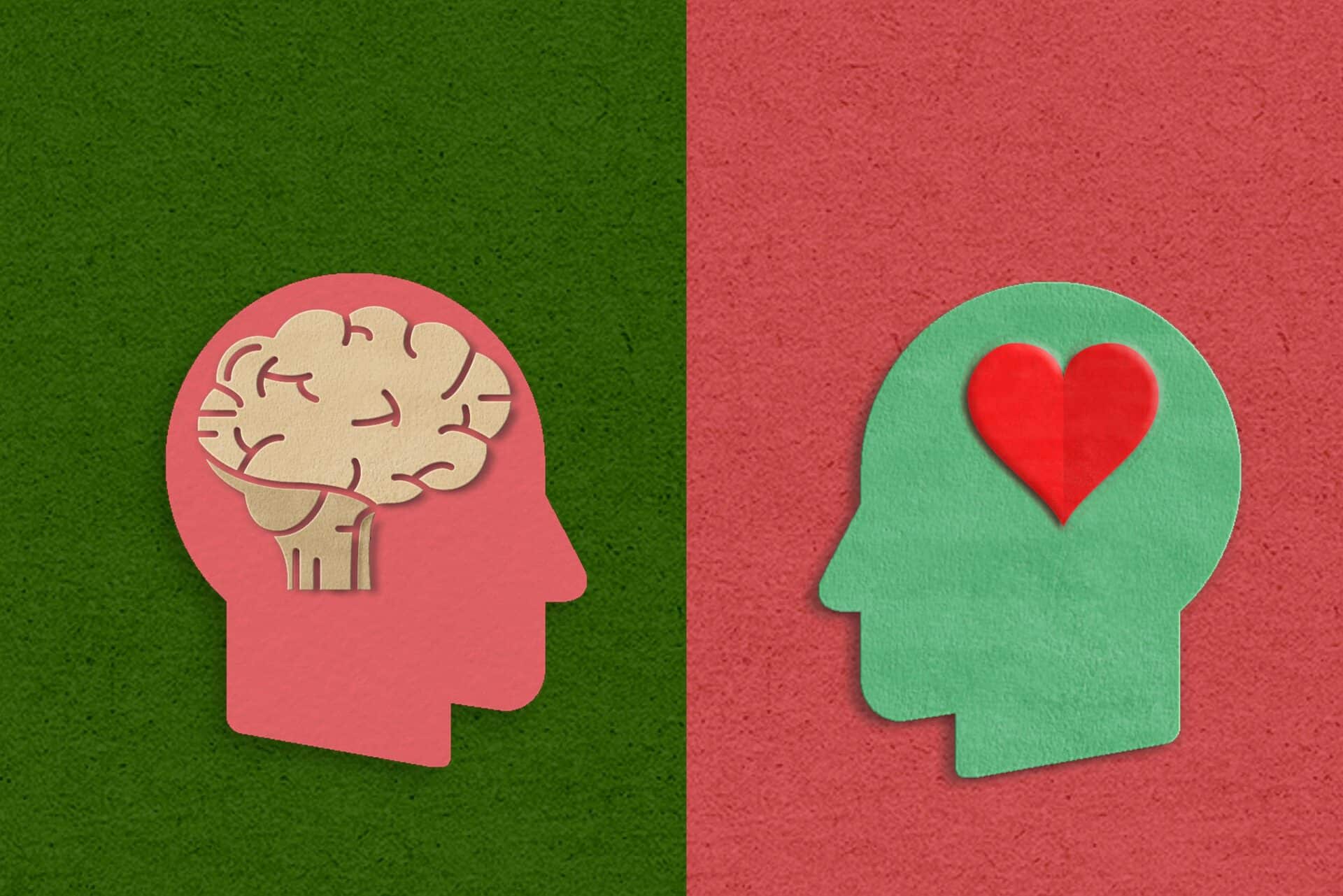In this post, we explain the difference between hard and soft skills — and explore how, with corporate language training, you can help your employees to develop both.
As the world of work evolves, employers and workers alike are increasingly considering which skills are most relevant in the modern workplace. With remote work, automation, and continuing globalization, we’re all wondering: What skills do we need in order to thrive at work?
When answering this question, it’s important to distinguish between hard and soft skills, and to recognize where they each bring value. Employers in particular have a responsibility to help their employees develop a well-rounded skill set — and this means providing adequate training for both hard and soft skills.
So what is the difference between hard and soft skills? How are they acquired, measured, and nurtured? And, as an employer, how can you foster both for a successful, productive, and happy workforce? Let’s take a look.
What’s the difference between hard and soft skills? An overview
Hard skills are technical abilities that apply to specific roles and tasks. Examples of hard skills include proficiency in a certain programming language or being able to play guitar.
Soft skills are interpersonal skills which can be transferred to different jobs and situations. They include skills related to communication and problem-solving.
When comparing hard skills vs. soft skills, you’ll see that they’re learned and applied in different ways — but it’s important to note that they’re equally important. Both hard and soft skills are needed to form a well-rounded skill set.
Definition: What are hard skills?
Hard skills refer to the specific capabilities, knowledge, and proficiency that are required to do a particular job. Hard skills are acquired through targeted training or on-the-job practice, and they enable an individual to successfully carry out role-specific tasks.
What are some examples of hard skills?
- Proficiency in a programming language such as JavaScript or Python
- Digital design skills, such as the ability to create wireframes and prototypes using design software
- Accounting and bookkeeping
- Data analytics
- SEO (search engine optimization) and other specific marketing techniques
- Foreign language skills/being bilingual or multilingual
- Proficiency in tools and software (e.g. Microsoft Excel)
- Cooking/baking skills
- Expertise in nutrition and fitness
- Being a qualified doctor or nurse
Essentially, any kind of mastery or expertise that’s required to complete a specific task can be considered a hard skill.
Definition: What are soft skills?
While hard skills are concrete and role-specific, soft skills are more generic and transferable. Often linked to emotional intelligence, they comprise the interpersonal skills and qualities which help us navigate different situations and challenges, both in and out of the workplace.
What are some examples of soft skills?
- Communication
- Problem-solving
- Creativity
- Empathy
- Critical thinking
- Time management
- Adaptability
- Leadership
- Teamwork
- Attention to detail
Soft skills are necessary for working harmoniously with others, for building positive relationships, and for managing conflict. As such, they’re crucial to an individual’s well-being — and lay the foundation for a productive, psychologically safe workplace culture.
Learn more about this topic in our blog post “Why Your Company Should Invest In Soft Skills Training.”
Hard skills vs. soft skills: How are they acquired and developed?
A notable difference between hard and soft skills lies in the way they are acquired and developed.
Hard skills are learned through dedicated training and practice. For example, if you wanted to get a job as a therapist, you’d complete a relevant qualification. You’d start by learning about key psychological theories, and then you’d train in certain therapeutic techniques. You might also learn how to use industry-relevant tools and software. Likewise, if you wanted to become a carpenter or an architect, you’d learn all the necessary tools and techniques. The learning path is concrete and clear-cut, with measurable progression from novice to master.
Soft skills are not so easy to pin down. By the time we’re adults, our soft skills tend to be already ingrained. In fact, they’re often described as personality traits or character attributes. You’ve probably heard phrases such as “Jay is a great communicator” or “Madison is really empathetic.” While it’s true that some people may naturally be more communicative and empathetic than others, these are actually soft skills — which means they can also be learned.
Given how subjective and ‘fuzzy’ they can be, knowing how to train and develop soft skills in the workplace can be a major challenge for employers, HR professionals, and managers. It usually requires a more personal approach, helping employees to identify specific weaknesses or areas of improvement within their own soft skill sets, and then providing feedback, coaching, and strategies to help them grow in certain areas.
Soft skills can also be developed in the process of training certain hard skills. Imagine a budding web developer learning Python (a hard skill). While mastering the very technical aspects of the coding language, they’ll also develop critical soft skills such as problem-solving and attention to detail. As such, building hard and soft skills doesn’t need to be a one-or-the-other endeavor.
Do you want to set up a language learning plan in your company? Watch our webinar for hands-on tips to overcome problems and help your team to succeed:
How are hard and soft skills measured and assessed?
Unsurprisingly, hard skills are easier to measure and assess than soft skills. Hard skills are demonstrated through relevant qualifications and certifications, and they can also be evaluated using specific tests and tasks.
For example, if you’re hiring a designer or a copywriter, you’ll likely get them to complete a practical task as part of the interview process. This allows you to see their hard skills in action.
Soft skills are a little harder to appraise as they’re subjective and not inherently quantifiable. However, there are certain techniques you can use to assess a candidate’s soft skills.
If you want to gauge a person’s soft skills during the hiring process, you can ask behavioral interview questions. These ask the candidate to share examples of specific situations and challenges they’ve encountered and how they navigated them, allowing you insight into their soft skill sets. Typical behavioral questions include “Tell me about a time when you faced conflict with a coworker. How did you deal with the situation?” or “Tell me about a time when you received negative feedback. How did you address it?”
A candidate’s answers to these questions will give you strong clues as to how they communicate, collaborate, problem-solve, and practice empathy.
If you want to evaluate your employees’ performance in relation to certain soft skills on an ongoing basis, you can incorporate peer feedback into your review process. This can provide valuable insight into how an employee interacts with and is perceived by others, and to identify areas for improvement which, as a manager, you may not be privy to.

What’s more important, hard skills or soft skills?
When comparing hard skills vs. soft skills, it’s tempting to view them as mutually exclusive. But, in reality, they go hand-in-hand. They each bring value in different ways, and both are needed to make up a well-rounded skill set. In fact, soft skills can enhance our ability to perform the technical aspects of a job.
Although employers have traditionally focused more heavily on hard skills, soft skills are increasingly recognized as a critical success factor in the modern workplace.
The growing importance of soft skills can be attributed to how the world of work is evolving. With remote work now the norm across many sectors, soft skills such as adaptability, empathy, problem-solving, and communication are absolutely vital for teams collaborating from different locations and, oftentimes, across different time zones.
At the same time, the slow but steady rise of automation will inevitably see certain hard skills being replaced. According to a report by PwC, 30% of jobs could be made redundant because of automation by the mid-2030s. This serves to highlight the relevance of soft skills like creativity, empathy, and critical thinking, which are much less likely to be automated or replaced any time soon.
A Deloitte report also emphasizes the critical role that soft skills play in allowing teams and businesses to thrive in an increasingly global market, stating:
“Although globalization offers businesses access to a broader customer base, it also exposes them to increasing competition. Being able to understand the needs of customers from different geographical and cultural backgrounds, communicate meaningfully, and deal with complex and ambiguous problems can be the key to customer service and differentiation. In this environment, the need for soft skills is going to intensify.”
It’s no longer enough for employers to focus exclusively on hard skills. Soft skills are increasingly critical to both employee and business success, and must therefore be prioritized in your learning and development strategy.
Discover in other blog posts, which skills global companies need to succeed and what the must-have skills for your customer service team are.
How to develop hard & soft skills in your organization through corporate language training
When it comes to helping your employees develop hard skills, it’s usually fairly straightforward to find a relevant course or learning materials. Training soft skills can be a bit trickier — but, as we mentioned earlier, you don’t necessarily need to target soft skills directly. Many hard skills will, by default, also teach and train critical soft skills.
Want to give your employees the opportunity to develop a highly valuable, career-boosting hard skill while training essential soft skills at the same time? Consider corporate language training.
Besides the obvious benefits of being able to converse and do business in another language, corporate language training is a highly effective (and enjoyable) way to train essential soft skills. Learning a new language has been proven to:
- Improve communication skills
- Enhance our ability for problem-solving and critical thinking
- Increase our capacity for empathy
- Boost our creativity and ability to innovate
- Leave us better equipped to focus and multitask
We’ve written in detail about how learning a new language helps your employees to develop critical soft skills (as well as the science behind it) in another post — check it out here: 5 Essential Soft Skills Your Employees Will Develop When They Learn a New Language.
Ultimately, corporate language training teaches a valuable hard skill and indispensable soft skills simultaneously. Not only does learning a language boost an individual’s employability, it also helps to grow their confidence, creativity, empathy, and communication skills — all of which offer a huge and immediate benefit to your organization.
Getting started with corporate language training
Babbel for Business is a flexible, cost-efficient language learning solution for companies of all sizes. With live, online group classes led by certified teachers, your employees can learn from anywhere. And, with Business Learning Paths, you can easily keep track of your team’s progress. If you’d like to learn more, check out all of our language learning benefits here.







